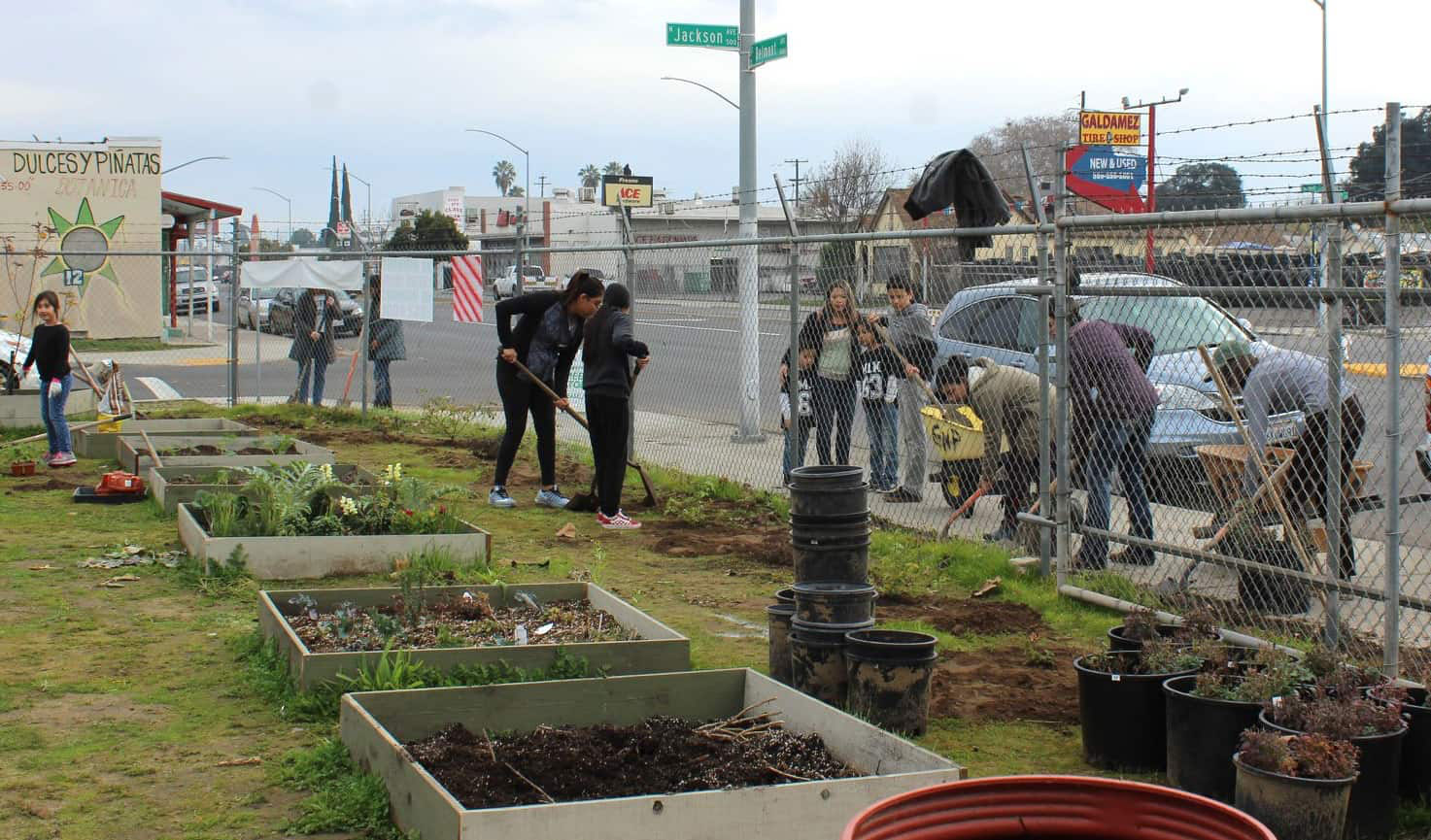
Community members work on the Fresno Community Gardens. Credit: Lana Silva
Impact report examines how assessing local information needs increases civic participation and helps new media ventures thrive
There is a paradox at the heart of local news today. Local reporting is more sought-after than ever – amid the COVID-19 pandemic, interest in local information surged worldwide, yet the financial outlook for local independent media has never been bleaker. In the absence of trusted outlets that might once have made sense of the pandemic for their local communities, people turned to social media to only be bombarded by misinformation and disinformation.
These are among the many reasons the Listening Post Collective has doubled its efforts to develop civic media + power-building resources so that local communities strengthen their local media ecosystems. And this is why the Listening Post Collective has devoted its resources to helping launch civic media projects like uSpark in Fresno, California.
Listen First: The Path to an Effective Media Model
Fresno is California’s poorest major city and suffers from a massive income disparity separating Black and Latinx residents from more well-off white residents. The Listening Post Collective’s first objective was to understand the information ecosystem of Fresno and ask questions like “What information is available? In what languages? How do people get information? Do they have news sources they trust? What vital information do they need that they are not getting?
This information is mapped and analyzed through an Information Ecosystem Assessment (IEA), a participatory research method developed by Internews to understand the varied sources, influences, and unique local characteristics of how communities produce and consume information.
The Information Ecosystem Assessment methodology delivers impact by sharing the findings with the community, co-designing new news and information products that respond to the conditions mapped in the analysis, and supporting these new media ventures with guidance and mentorship.
The Listening Post released the Fresno IEA in 2019, followed by a series of briefings for news outlets, officials, and citizens at public gatherings. The assessment revealed that many people had ideas for filling reporting gaps and staying better informed: neighborhood civic calendars, live newscasts at school meetings and food giveaways, Spanish-language news bulletins for rural communities, and more. Once LPC shared the findings with the community, the LPC released a call for proposals that solicited ideas from the community to launch a civic media solution. Selected grantees then received seed funding and a year of hands-on mentorship from the Listening Post Collective, which provided support and guidance on community engagement, editing, publishing, partnerships, and development.
uSpark Valley Builds Community Engagement
Among grantees, uSpark Valley stands out for the enthusiastic engagement it received from its target audience. uSpark Valley is a Millennial- and Gen Z-focused start-up that publishes directly to social media, with an estimated audience of at least 10,000 residents. uSpark is unique as a news organization. Its content includes journalistic reporting and audience action items — including links to information about attending city council meetings, information about protests and marches, and direct fundraising campaigns in response to community disasters.
Research examining the impact of uSpark Valley found:
- 91% of respondents said they access news and information from uSpark at least once a week, suggesting that uSpark meets its audience’s information needs.
- uSpark’s audience relies on it for coverage of a variety of issues, but especially for voting (82%), community events (74%), and health (60%) – critical in a year with an important election and a global pandemic.
- 76% of respondents trust uSpark more than other publications.
Further, uSpark’s audience relayed concrete actions they’d taken due to information received. One respondent said,
“The Black Lives Matter info [USpark provided] prompted my first comments on a city council meeting.”
And another described their first participation in a local government meeting:
“When USpark talked about budget hearings, I went to the Zoom meeting and did some more research into what the city was doing with their budget. I wouldn’t have known without uSpark.”
Conclusion
Information Ecosystem Assessments, like the one completed in Fresno, map the current state of information in a community and can serve as a roadmap for future investment and development of local, community-led information ventures.
Impact Architects’ research found that multiple community stakeholders continue to use the IEA to inform their work and helped to connect with people in a way that no Fresno-based organization could do on its own.
Since this report was released, the LPC has embraced some of the Impact Architect’s report recommendations to inform its newly formed partnership program.
